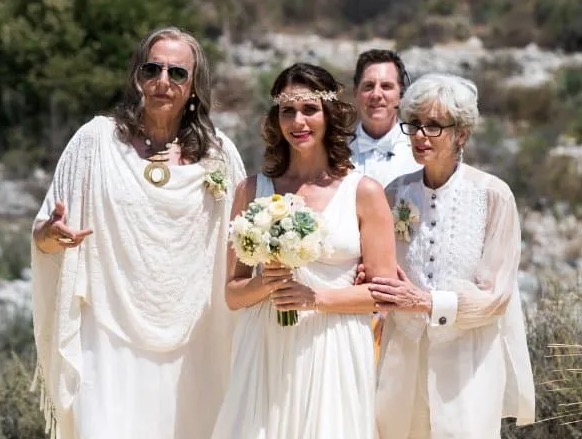The Importance of “Transparent”
Recently, I watched several seasons of the Amazon production, Transparent, starring Jeffrey Tambor, who plays a trans woman named Maura who reveals her true self to her family, friends, and co-workers. Maura is a middle-aged Jewish college professor who kept her feminine personality a secret almost her entire life. What struck me was how the storyline has all three of Maura’s adult children and her ex-wife supportive and accepting of her transition with little hesitation.
Perhaps it was just Hollywood’s rendition, but I wondered how realistic it is for trans women to gain immediate acceptance from their families and friends when they finally reveal themselves. How accurately does the show depict Maura’s other struggles as she lives her life as the woman she always knew she was? The informal poll I took in September of other cisgender women told a somewhat different outcome in these circumstances.
After watching dozens of episodes, I was drawn toward Maura’s character and felt moved by her predicament. Here is a 60-something-year-old [man] who lived most of his life in the shadows as a trans woman in a time when such lifestyles were still mostly taboo. Maura lived with secrets only a few of her kind shared and lived in fear of being discovered while at the same time trying to find an outlet to reveal herself to those she loves.
The episode “Kina Hora,” where Maura’s eldest daughter marries her lesbian partner, is particularly poignant. Maura’s estranged sister shows up and is unaware of her brother’s transition. Maura is dressed in a long flowing ivory dress like any mother of the bride might be wearing, a long wig, and lovely makeup. The look of disgust on the sister’s face when Maura walks up to her to hear her sister say with repulsion, “Mort! Look at you!” Maura softly replies, “I go by Maura now.”
Later, when Maura thanks her for coming to the wedding and requests to see their ailing mother, the sister replies, “Don’t you dare! She is going to leave this planet without seeing this!” as she looks Maura up and down with indignant disapproval. I paused the show and stared at the look on Maura’s face as she took in the sister’s words. It was beyond sad. Maura was experiencing the fateful consequences of living her truth. However, the show effectively made viewers feel sorry for Maura one moment, then upset at her obnoxious behavior the next.
From the get-go, the show garnered much-deserved controversy from many in the trans community. Casting a cisgender male (Tambor) to play the role of Maura was only the beginning, combined with all-cisgender writers. Attempting to correct the colossal misstep in season 2, the production hired a trans consultant, adding to the growing backlash among trans people. Instead of hiring someone who represented the experiences of the vast majority of average trans women, they hired a rich and famous trans musician, Our Lady J, to be their consultant — proving once again that being rich and famous opens many doors.
Jeffrey Tambor was solemnly let go after allegations of sexual harassment by two other cast members, which Tambor vehemently denied and the show ended shortly afterwards. Regardless of how you feel about the show, its cast, the writing, or its portrayal of the trans community and their struggles to find peace and acceptance, you can’t deny that the show elevated a controversial subject into the conversations of its audience and the media — a pretty daring move that hasn’t been seen very often in mainstream television since the airing of All in the Family.
Perhaps if the show had been more sensitive to the trans community and had it been produced today instead of back in 2014, the approach and the outcome might have been different. Still, with all its faults aside, I believe it was an important step in raising awareness among cisgender people about an often misunderstood and growing segment of our society.
Category: Transgender Body & Soul












